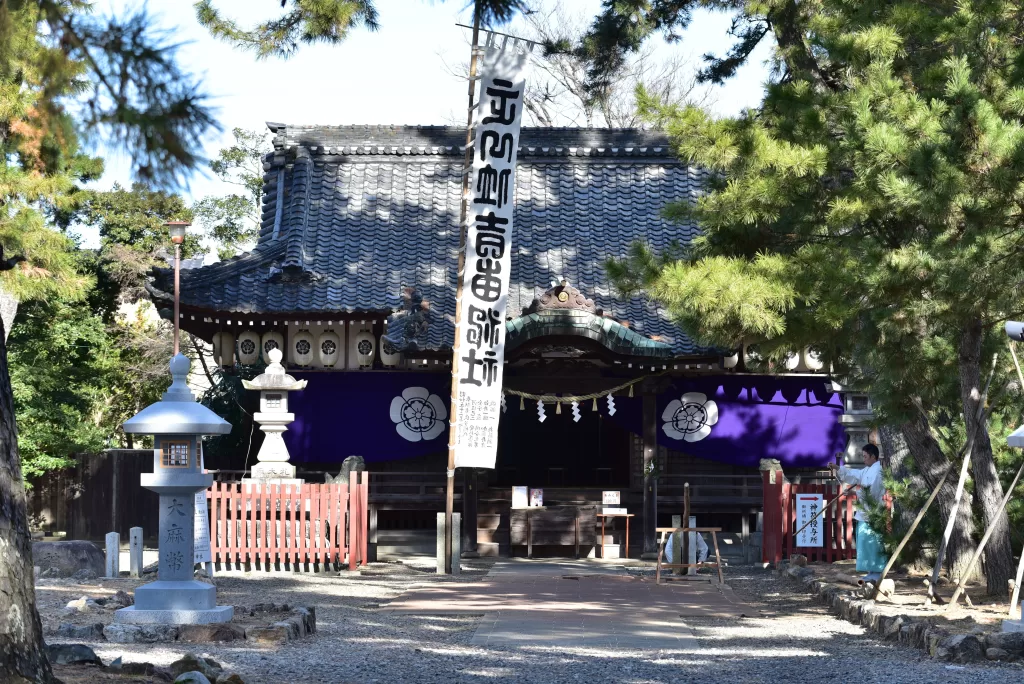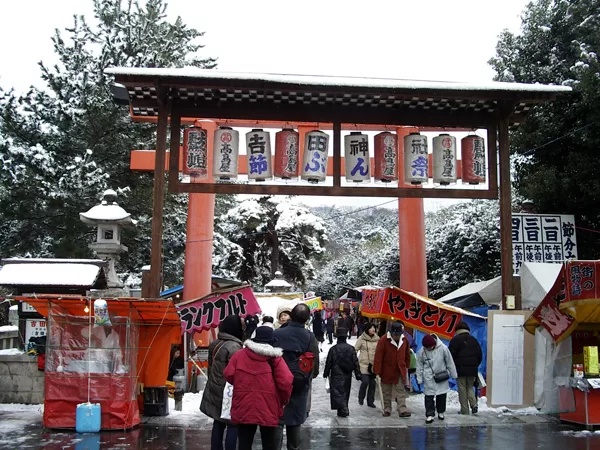Yoshida Shrine’s Setsubun Festival: A Celebration of Tradition and Culture

A Glimpse Into The Setsubun Festival
Every February, a wave of excitement washes over Japan as residents and tourists gear up for one of the most awaited celebrations in the land – the Setsubun Festival. Particular attention goes to Kyoto’s renowned Yoshida Shrine, known for its energized festivities celebrating this pivotal moment in the Japanese Lunar Calendar that welcomes Spring.
An Assembly of Crowds and Culinary Delights
On the days of the festival, Yoshida Shrine transforms into a bustling hub where locals and visitors mingle amidst a vibrant atmosphere. The normally quiet shrine becomes livelier as night falls. A unique sight during this festival includes food stalls lined on both sides of the narrow road leading to the temple, causing it to get even narrower. It’s known that an impressive number of almost 800 food stalls pop up near the temple on February 2nd and 3rd. From traditional festival staples to more exotic offerings like grilled ayu sweetfish, their variety intrigues many who sometimes attend solely for these culinary delights.
Traditional Rituals: Tsuinashiki and Karosai
The Setsubun Festival at Yoshida Shrine also hosts two significant rituals called Tsuinashiki and Karosai held on February 2nd and 3rd respectively. It’s also one of the most awaited Kyoto events in February.
Tsuinashiki Ritual
Also referred to as the Oniyarai ritual, Tsuinashiki is a symbolic activity performed to ward off evil spirits embodied by three demons that roam around the shrine during nightfall. This spectacle draws a crowd with its unusual exorcism display- where these menacing spirits are first cornered by “champions of justice” demons called Hōsōshi, before being driven off by temple people shooting arrows at them.
Karosai Ritual
The subsequent day features another captivating ritual called Karosai. This ceremony involves burning old “omamori” amulets and “ofuda” wooden blocks with wishes written on them brought by worshippers. These are then used to form a huge bonfire in front of the tori gate, emanating immense heat believed to bring well-being for those daring enough to get close.
Luck Favors Some Through Lucky Beans Lottery
A big draw is found in buying “lucky beans”. For only 200 yen ($2), you can participate in a lottery drawing full of lavish rewards such as cars, electronics, hotel vouchers and more. Winners are announced at 1PM on February 4th at the temple, with results also available online on Yoshida Shrine’s website or in Kyoto Shimbun newspaper.

Heritage at The Heart Of The Celebrations
The Yoshida Shrine, dating back to 859 AD, sits at Sakyo, Kyoto’s foot. It’s famous for hosting traditional wedding ceremonies and warding off bad luck. The enshrined deities are believed to expel evil and attract positivity making it a significant place for faith.
Additionally, aspiring chefs across Japan often visit due to various deities devoted to cooking lined along its grounds.
Known for its grand Setsubun celebrations since the Muromachi Period (1336-1573 A.D.), the shrine buzzes with tourists fascinated with the Oniyarai ceremony’s rich traditions featuring three primary oni—red, blue, and yellow being chased away by “Housoshi.” This offers unforgettable photo opportunities for visitors wanting to capture classic Japanese tradition.
A piece of advice for visitors: adequate warm clothing is recommended due to Kyoto’s chilly winters during February. Additionally, using public transportation will alleviate parking congestion during this popular event.
The Yoshida Shrine’s Setsubun Festival presents participants with not just an array of diverse cultural activities but also offers unique encounters that are sure to create lasting memories. Regardless if you’re chasing Oni away from your life or dining over delicious festival food offerings – there’s something for everyone at this time-honored affair.
The Mibu-Dera Setsubun Yakuyoke Ceremony is an extraordinary event that upholds a revered tradition spanning over 900 years in Japan.